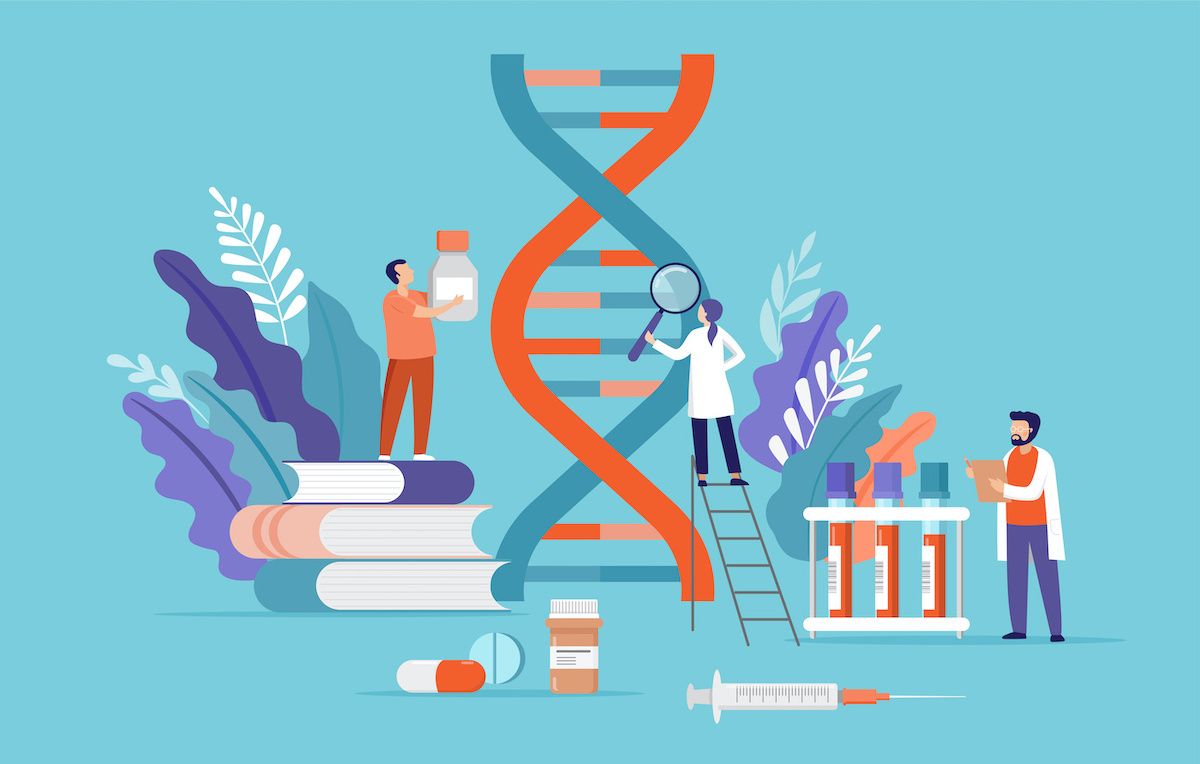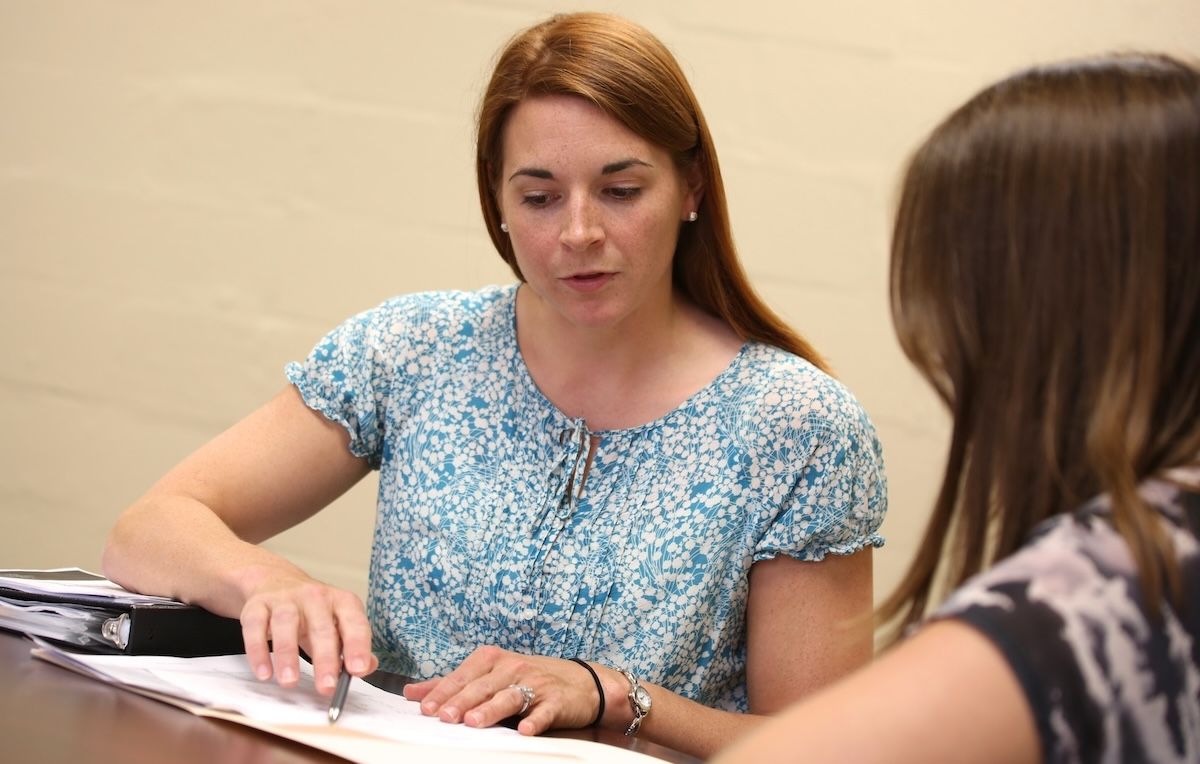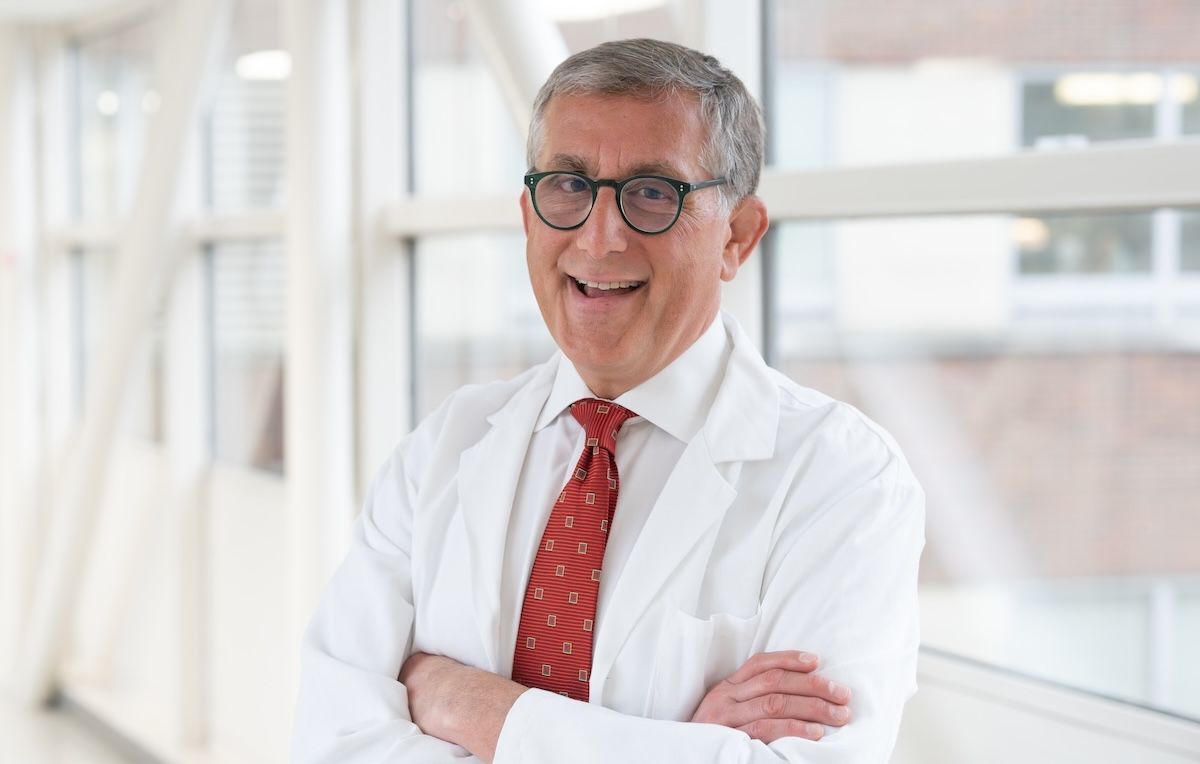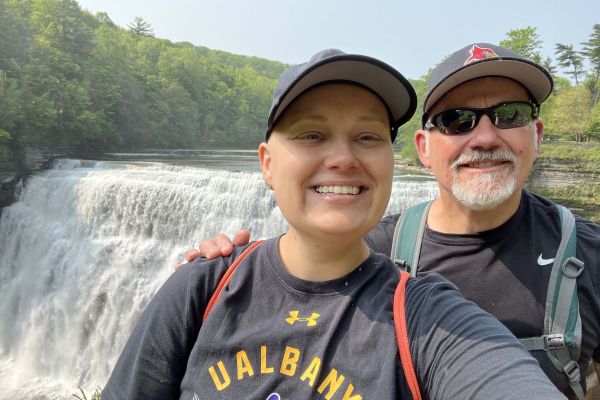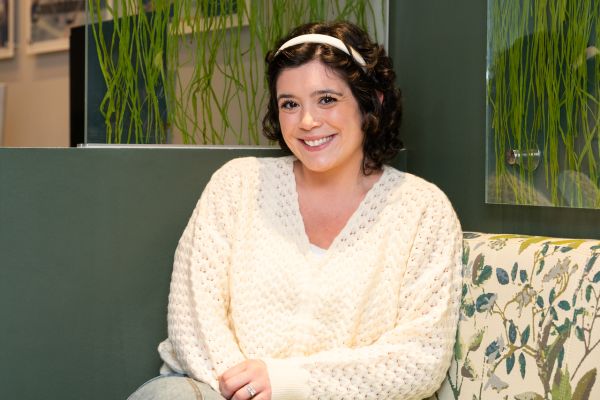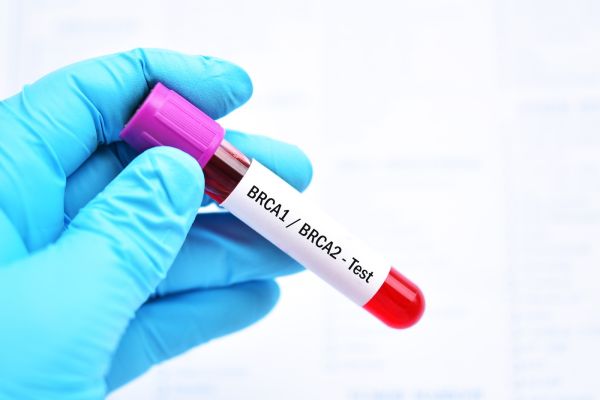Learning about your genes is just the first step. Having this knowledge is important and powerful — and can save your life.
Imagine being able to look at your DNA, the genetic code within your cells, and know whether you’re at increased risk for cancer — long before any symptoms appear or screening tests detect any warning signs. Genetic testing looks for variants (changes or mutations) in your genes that are associated with developing cancer.
Knowing what to do with this information, how to take charge of your health and wellness, and prevent cancer, or detect it at its earliest stage when treatment is most effective, is what sets Roswell Park apart.
If you’ve had genetic testing in the past, more than 10 years ago, please call us for an evaluation. Recent discoveries and new technology mean we may provide more precise information and even better options for you now.
Your genes and cancer
Learning whether you have a gene variant associated with cancer can change how you manage your health, screen for cancer, take preventive measures, plan your family and much more.
Who should have a genetic evaluation?
If you or a family member has cancer, it's important to learn whether there may be an inherited factor at work because it may impact your care today and beyond.
Taking charge of your health
Whatever your genetic testing may reveal, we’ll provide you a path forward with expert guidance, medical care and the latest surveillance and preventive options — for life.
Why learn about your genes?
Nobody wants to live their life worrying about whether cancer is lurking in the near or distant future. This knowledge is power because we can provide options: patients with cancer can get more precise treatment; others can reduce their risk, preserve fertility and make choices that optimize their health so they can look forward to a life without cancer.Kenan Onel, MD, PhD, Chief, Clinical Genomics and Director, Center for Precision Oncology and Cancer Prevention

